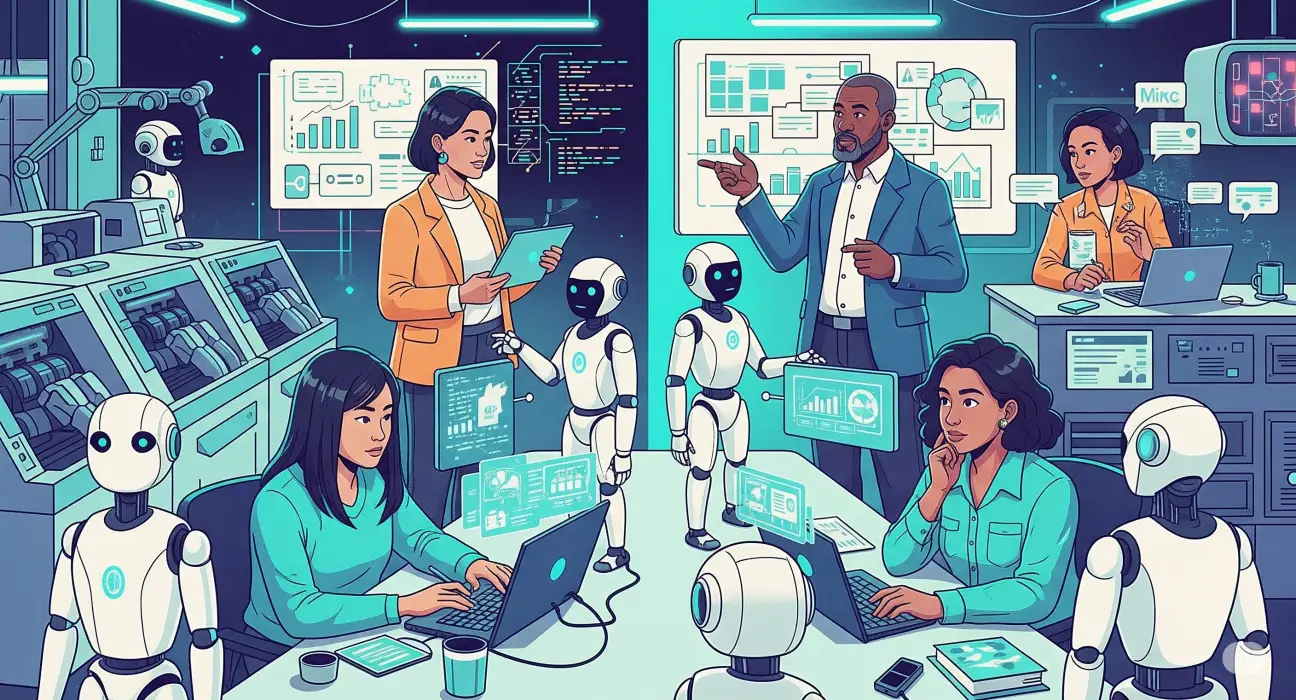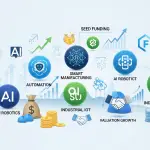In today’s workplace transformation, AI and automation are rapidly reshaping career landscapes. While some traditional roles are disappearing, an entirely new class of careers is emerging—offering high demand for those who can combine technical know-how with distinctly human skills.
🛑 What to Avoid: Highly Automatable Roles
Routinely, roles centered on repetitive tasks are under threat. By 2030, up to 30% of the global workforce may be impacted by automation. These roles include:
- Data entry and administrative support
- Basic customer service roles (helpdesks/chats)
- Entry-level software development and QA
- Routine analytic work without decision-making
While these jobs once provided solid career beginnings, many are now being automated away, offering diminishing returns for those hoping to build a long-term career.
🚀 What to Learn: Skills That Stand the Test of Automation
1. ⚙️ Tech + AI Fluency
You don’t have to be an AI engineer, but understanding AI tools and prompt-engineering is essential. Learning to work with AI—not against it—is a key edge. Google Cloud CTO recommends grounding in core computer science fundamentals before deeper AI study.
2. 🎯 Critical Thinking & Problem-Solving
Automation can analyze data—but humans make meaning of it.
Learning complex problem deconstruction and systems thinking is a major advantage .
3. 🤝 Emotional Intelligence & Leadership
AI can’t replicate empathy, mentorship, or conflict resolution. Effective communication and emotionally intelligent leadership will always matter.
4. 🎨 Creativity & Innovation
AI tools can’t originate unique ideas or design holistic solutions. These skills—design thinking, narrative building, product innovation—will be in demand .
5. 🛡 Ethical & Responsible AI
As organizations use AI more heavily, there’s growing demand for AI ethics officers, auditors, and risk specialists.
6. 🔄 Lifelong Learning & Adaptability
The most valuable trait in this era is an ongoing learning mindset. Courses, certifications, and peer groups are essential.
🧭 Career Paths to Focus On
| Role / Path | Why It’s Future-Proof |
|---|---|
| AI Ethics & Governance | Ensures safe, fair, and responsible AI deployment. High growth in enterprise demand |
| Human-AI Interaction Designer | Ensures AI tools are effective and user-friendly for humans |
| Cybersecurity Analyst | AI can flag threats, but humans interpret and act. |
| Leadership & Change Management | Human-driven change leaders are vital during transformation |
| Creative Roles (UX, content, design) | Machines can assist, but unique human creativity still leads |
| Hybrid Technologists | Robotics engineers, prompt engineers, data-ethics analysts: combining tech with insight |
| “Trades with Intelligence” | Job titles like HVAC tech, electrician—augmented with AI diagnostics—non-automatable roles |
🔧 What to Do Next: Immediate Actions
- Map your current skillset — identify gaps in AI literacy, soft skills, or ethical understanding.
- Choose 1–2 new skills (e.g., prompt engineering + interpersonal leadership) and commit to learning.
- Build a small project or online portfolio showcasing your hybrid skills (tech + human).
- Join peer communities (LinkedIn groups, meetups, courses) to stay connected with changemakers and evolve.
🧩 Final Takeaway
Automation is eliminating repetitive work—but it also is creating better, more meaningful jobs for those prepared. The future workplace favors people who can:
- Combine technical leverage with emotional intelligence
- Lead people through change
- Think creatively and ethically
By focusing on uniquely human skills, ongoing learning, and ethical tech adoption, you can build a resilient, future-proof career in the age of automation.




